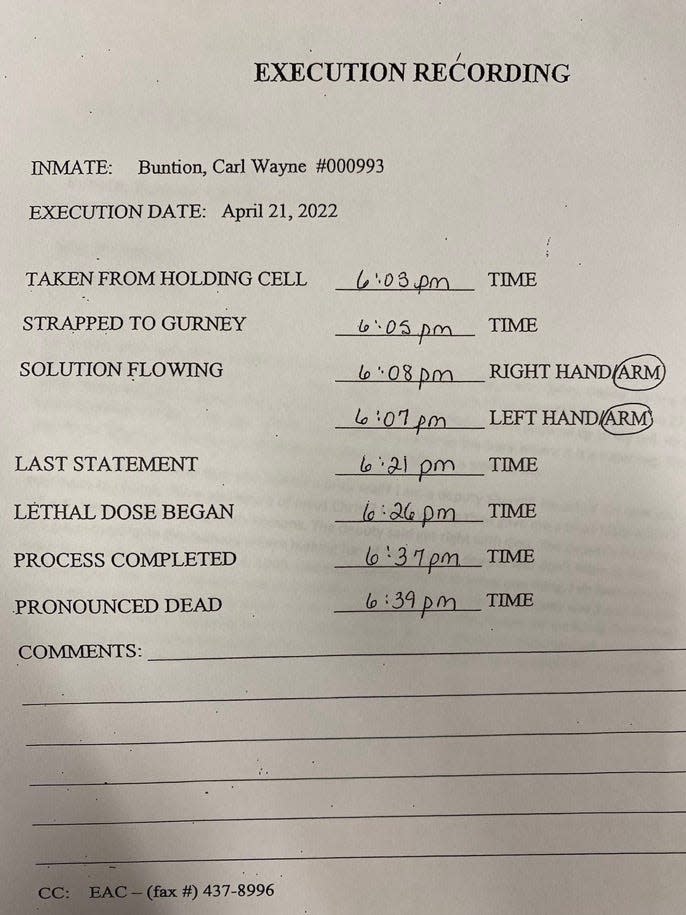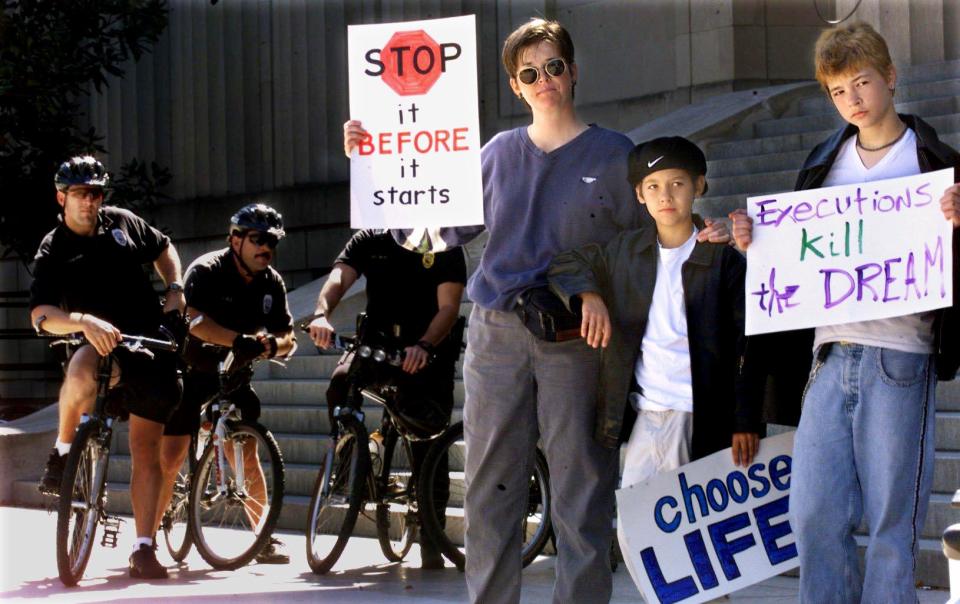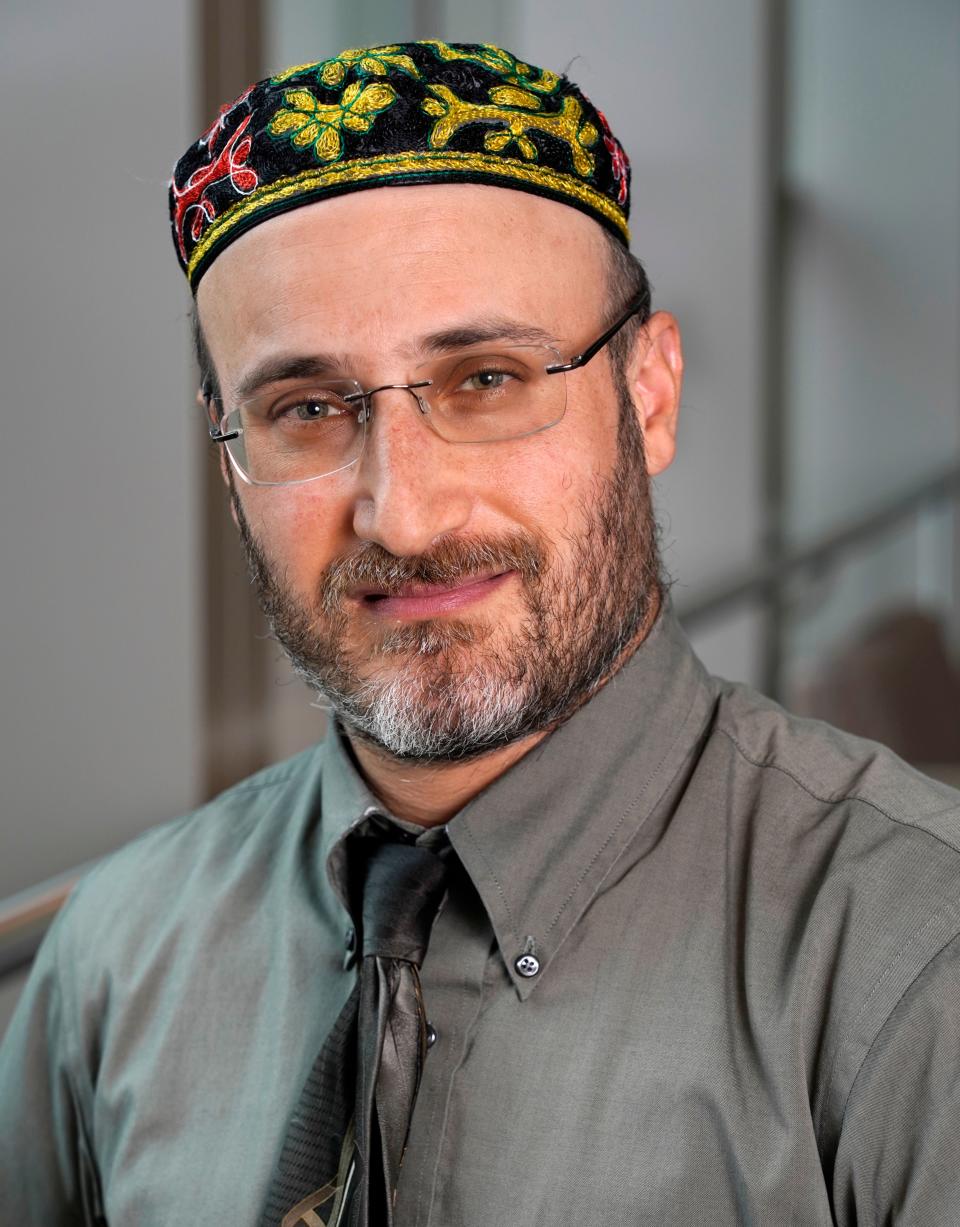Tennessee prisons ban book opposing capital punishment; they should reconsider | Opinion
- Oops!Something went wrong.Please try again later.
Shalom Aleichem Tennesseeans:
We, the members of L’chaim! Jews Against the Death Penalty, are an international group that advocates against the death penalty and provides spiritual support to all of those impacted by the self-perpetuating cycle of violence of capital punishment. Among us are many descendants of Holocaust survivors— like me.
We hold firmly to the words of Holocaust survivor Elie Wiesel, who, when asked about capital punishment, famously replied: “Death is not the answer.”
Professor Wiesel also poignantly said: “With every cell of my being and with every fiber of my memory I oppose the death penalty in all forms. I do not believe any civilized society should be at the service of death. I don’t think it’s human to become an agent of the angel of death.”
Professor Wiesel’s clarion call rings particularly loudly at this time of year when, we as Jews, celebrate the Passover holiday commemorating when the Angel of Death “passed over” the homes of our ancestors in Egypt— sparing the lives of the first born sons inside.
Hear more Tennessee Voices: Get the weekly opinion newsletter for insightful and thought provoking columns.
Why the death penalty is so brutal
This year, as many of us celebrated, we confronted the horrific synchronicity that on the sixth night of our holiday of redemption, our country had not one but two scheduled executions.
One of the intended victims was our pen pal Oscar Franklin Smith— a 72 year old Tennessean whose life was spared due to an “oversight” in the drug protocol.
Our pen pal Carl Buntion of Texas did not fare as well. Here is how the officials overseeing his murder recorded it:

"The banality of execution, the reduction of a human life to time stamps and recordkeeping, and the bureaucratization of death, is all too reminiscent of the Nazis, whose records routinized the brutality of state-sponsored killings and dehumanized victims. Perhaps unsurprisingly, Nazi Dr. Carl Brandt, Hitler’s personal physician, was the first to implement lethal injections as part of the infamous T4 Aktion protocol, devised to kill people deemed “unworthy of life.”
If you remain unmoved by this Nazi legacy, consider the following illustration of how far out of step Tennessee stands in relation to communities of faith on this issue.
The InterFaith Council (IFC) of the Wabash Valley is a non-profit organization, of which I am a member, comprised of multi-faith clergy and lay people aimed at supporting peace among all faiths. In response to a federal killing spree of 2020-2021, the IFC published a book of collected essays called “From the Killing Fields of the Federal Government: Interfaith Essays on the Resumption of Executions” criticizing the death penalty.

Your state. Your stories. Support more reporting like this.
A subscription gives you unlimited access to stories across Tennessee that make a difference in your life and the lives of those around you. Click here to become a subscriber.
In full disclosure, I contributed an essay to this book.
We at L’chaim sent “The Killing Fields” to individuals awaiting state executions throughout the country, including to the U.S. Government’s Federal Death Row Penitentiary in Terre Haute, Indiana. The IFC sent a copy of this book to Oscar Franklin Smith, hoping that he might take some comfort in knowing that the multifaith world stood against his looming state killing.
Tennessee's response to multi-faith views on capital punishment

Unlike every single other state or federal penitentiary to receive our book, Tennessee was the only state to reject it.
As reflected in the memo below, the Tennessee Department of Corrections asserted that it featured “[m]aterial that could advocate, facilitate or otherwise present a risk of lawlessness, violence, anarchy or rebellion against government authority, prison staff and/or other inmates,” albeit a risk clearly shared by no other state in the country.
Hear from Tennessee's Black Voices: Get the weekly newsletter for powerful and critical thinking columns.
As we consider this in the wake of Tennessee’s recent banning of the Pulitzer Prize-winning Holocaust-themed graphic novel of "Maus," we cannot help but ask further if there some kind of endemic in our state that leads to book-banning.

In our case, what is it that renders Tennessee so peculiarly unsafe that a book by an organization promoting interfaith peace is rejected and withheld from a man awaiting death?
Is Tennessee so frightened by the mere exchange of ideas that it seeks to deprive those sentenced to die the knowledge that there are those who believe they should not die?
Tennessee’s official state motto is “America at its Best.” By banning a book that draws attention to the evils of the death penalty and begs citizens to think differently about state sanctioned killing, it is clear that Tennessee is falling short of its own promise.
L’chaim— to Life !
Michael Zoosman is the Chaplain, Cantor and Founder of “L’chaim! Jews Against the Death Penalty— an international group that advocates against the death penalty and provides spiritual support to all of those impacted by the self-perpetuating cycle of violence of capital punishment. Zoosman is a Board Advisory Member of Death Penalty Action.
This article originally appeared on Nashville Tennessean: Tennessee prisons wrongly ban death penalty abolitionist book

